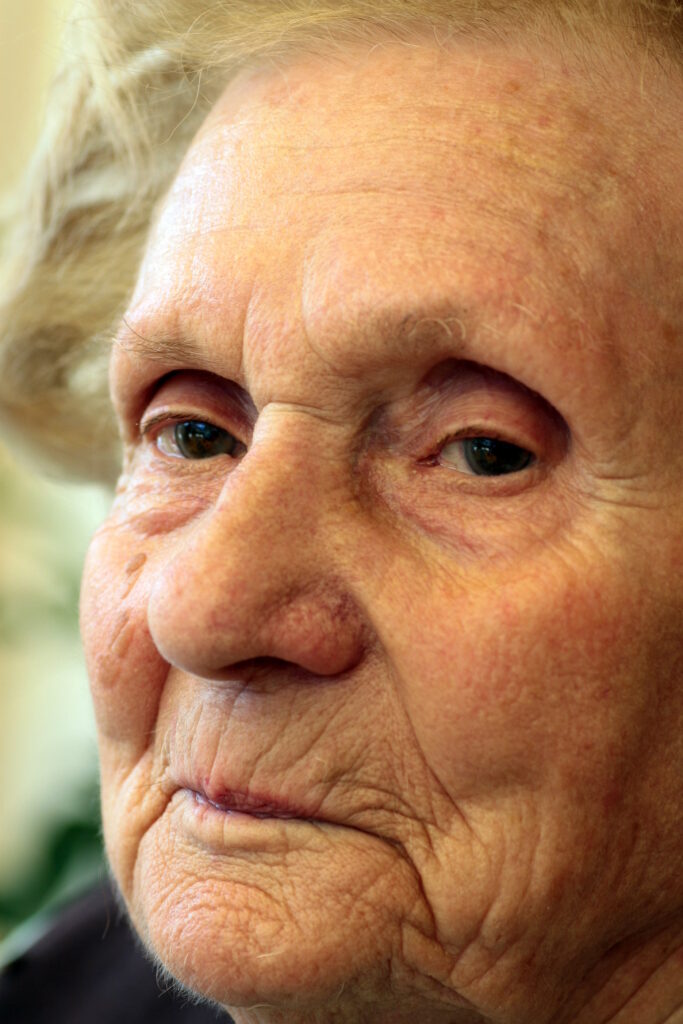No matter if you like to be in the spotlight or have one-on-one conversations, meeting friends is a great way to stay connected. However, you may be doing something in these situations—intentionally or not—that could be hurting your brain. Yahoo Life’s recent article entitled “If You Do This in Social Situations, Your Dementia Risk Soars” says that dementia is prevalent across the U.S., and the Centers for Disease Control and Prevention (CDC) estimates that roughly five million adults are currently living with the condition. With no cure, researchers have been actively working to pinpoint factors that put individuals at risk. And a recent study looked at how social behavior may impact dementia risk, and the study found a connection!
Because your brain controls your emotions, thoughts, and interactions, it’s not surprising that certain social situations can impact brain health. Spending time with other people benefits your brain—and according to a new study, being socially active may have even more benefits than you first believed.
Findings published in Neurology say that those who are socially isolated had lower brain volume in the regions associated with learning and thinking. These just so happen to be the areas of the brain that are initially affected by Alzheimer’s disease—the most common form of dementia. In fact, those with isolated social contact had a 26% increased likelihood of developing dementia, compared with those who had regular social interaction.
The researchers didn’t find a link to a related factor. Researchers from the U.K. and China surveyed 462,619 participants with an average age of 57 about their social contact, ran MRI scans, and administered cognition tests. Over the course of the 12 years, almost 5,000 of the participants developed dementia.
And while the external, objective aspect of being socially isolated was associated with increased dementia risk, the internal feeling of isolation—loneliness—was not linked to the debilitating condition. Both isolation and loneliness have previously been studied by researchers who believed they potentially upped the risk of dementia. However, in this study, investigators distinguished the effects of the external and internal factors.
“Both have risks to health but, using the extensive multi-modal data set from the UK Biobank, and working in a multidisciplinary way linking computational sciences and neuroscience, we have been able to show that it is social isolation, rather than the feeling of loneliness, which is an independent risk factor for later dementia,” Edmund Rolls, DPhil, study author and neuroscientist from the University of Warwick Department of Computer Science, told ScienceDaily.
“This means it can be used as a predictor or biomarker for dementia in the U.K.,” he added.
In fact, social isolation was a problem even before the pandemic. Data from the U.K. Biobank study was collected almost 12 years before the pandemic, which shows that social isolation was a problem even before the advent of stay-at-home and quarantine orders, and now is an even bigger concern.
“Social isolation is a serious public health problem that is often associated with old age,” Sara Imarisio, PhD, head of research at Alzheimer’s Research U.K., said in a press release outlining the findings. “This issue has worsened during the COVID-19 pandemic as more people were cut off from their usual social networks.”
In studying how social behavior may impact dementia risk, researchers say the pandemic has only emphasized the need to encourage healthy socialization.
“Apart from staying socially active, there are many other ways to help keep our brains healthy as we age,” she said. “These include being physical and mentally active, not smoking, only drinking in moderation, eating a balanced diet, and keeping cholesterol and blood pressure levels in check.”
“We highlight the importance of an environmental method of reducing risk of dementia in older adults through ensuring that they are not socially isolated,” Jianfeng Feng, PhD, professor from the University of Warwick Department of Computer Science and corresponding author for the study, told ScienceDaily. “During any future pandemic lockdowns, it is important that individuals, especially older adults, do not experience social isolation.” Beck, Lenox & Stolzer couldn’t agree more!
Reference: Yahoo Life (June 14, 2022) “If You Do This in Social Situations, Your Dementia Risk Soars”










